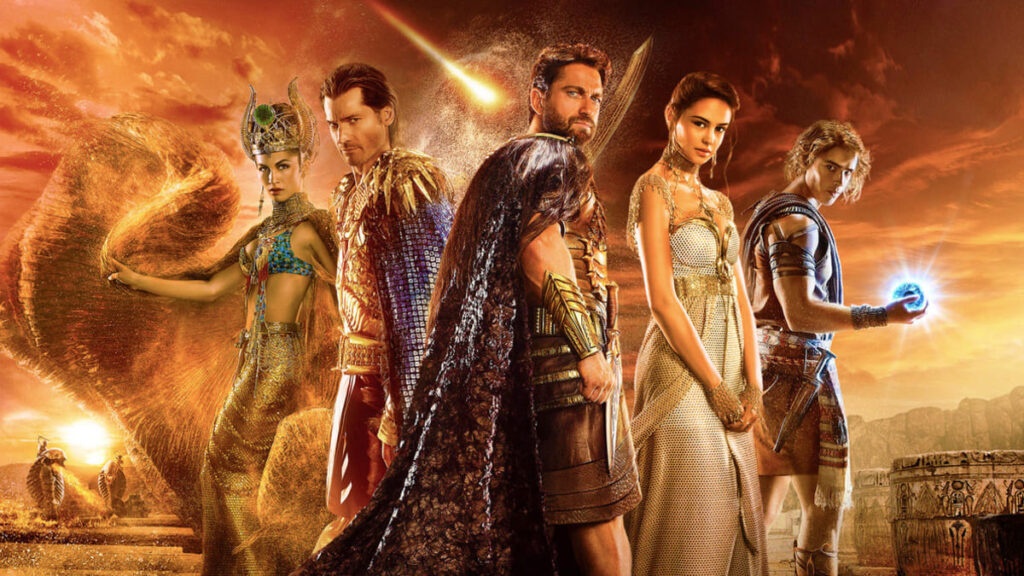When a film hits the big screens with a whopping $140 million budget and the ambition to become a blockbuster, expectations naturally run high. Yet the 2016 release Gods of Egypt has carved out a notorious niche in Hollywood lore as one of the industry’s most significant failures—both critically and commercially. Despite its star-studded lineup and grand vision, it stands as a textbook example of how not to launch a fantasy epic.
A Mythology in Disarray
Directed by Alex Proyas, whose previous credits include I, Robot and Dark City, Gods of Egypt aimed to deliver a thrilling adventure steeped in ancient Egyptian mythology. The storyline focused on the conflict between the gods Seth and Horus, set in a fantastical realm where deities walked alongside humans. The narrative followed Bek (portrayed by Brenton Thwaites), a mortal who allies with Horus (played by Nikolaj Coster-Waldau) in a quest to thwart Seth (played by Gerard Butler) from assuming control over Egypt. Together, they encountered mythical beings and faced numerous obstacles to restore harmony to their world.
The film also featured a remarkable cast, including Chadwick Boseman as the god Thoth. Despite these promising elements, the movie’s reception at the box office and among critics was dismal.
The Collapse of an Ancient Legend
Upon its release, Gods of Egypt faced a torrent of harsh reviews. The film scored a dismal 14% approval rating on Rotten Tomatoes, underscoring its inability to meet audience expectations. Critics highlighted several significant shortcomings: unremarkable visual effects, clumsy writing, and a lack of originality in the plot.
One of the film’s most contentious issues was its whitewashing, characterized by the casting of predominantly white actors in the roles of Egyptian gods. This decision incited backlash from viewers and industry commentators alike. Alonso Duralde from TheWrap articulated that the film “could have been so bad it was good had it retained the unintentional laughs of its opening ten minutes. Instead, it descends into mediocrity, squandering the potential for campy classic status.”
Proyas’ Tenacious Response
Following the intense backlash, Alex Proyas responded defiantly. He took to Facebook, vehemently criticizing the critics as “sick vultures pecking at the remains of a dying carcass.” Proyas claimed that journalists were hesitant to defend a film that didn’t conform to industry norms. While he acknowledged the whitewashing controversy, he dismissed its significance in the context of this film, stating that Gods of Egypt wasn’t the appropriate platform to discuss diversity issues.
Despite Proyas’ spirited defense, the film’s dismal financial performance only added fuel to the fire. With a production budget of $140 million, Gods of Egypt raked in a meager $31.2 million in North America and an international total of $119.6 million, resulting in a gross of $150.6 million. This left the film in the red, incurring a staggering loss of roughly $90 million, as reported by The Hollywood Reporter.
A Legacy of Missed Opportunities
In retrospect, Gods of Egypt stands as a cautionary example for filmmakers, illustrating that high aspirations, substantial budgets, and a star-studded cast don’t guarantee success. Its failure stemmed not only from an inability to deliver compelling storytelling and visual spectacle but also highlighted broader issues within Hollywood, particularly regarding cultural representation and audience expectations for films that purport to portray ancient civilizations.
For Alex Proyas, his evident passion for the project fell short of translating into a successful film. With a budget equivalent to that of major blockbusters, Gods of Egypt represented an ambitious yet flawed marriage of mythology and modern filmmaking techniques, and unfortunately, it failed to resonate with both critics and audiences alike.
So, what lessons can we draw from the dramatic demise of Gods of Egypt? Even the most illustrious projects can falter. Whether it’s the quality of the visual effects, the strength of the narrative, or the commitment to cultural authenticity, this film underscores the importance of thoughtful execution and audience consideration in today’s competitive cinematic landscape.
The downfall of Gods of Egypt serves as a potent reminder that in the realm of blockbuster filmmaking, it’s not just about budget size or star appeal; it’s the execution that truly determines success.







